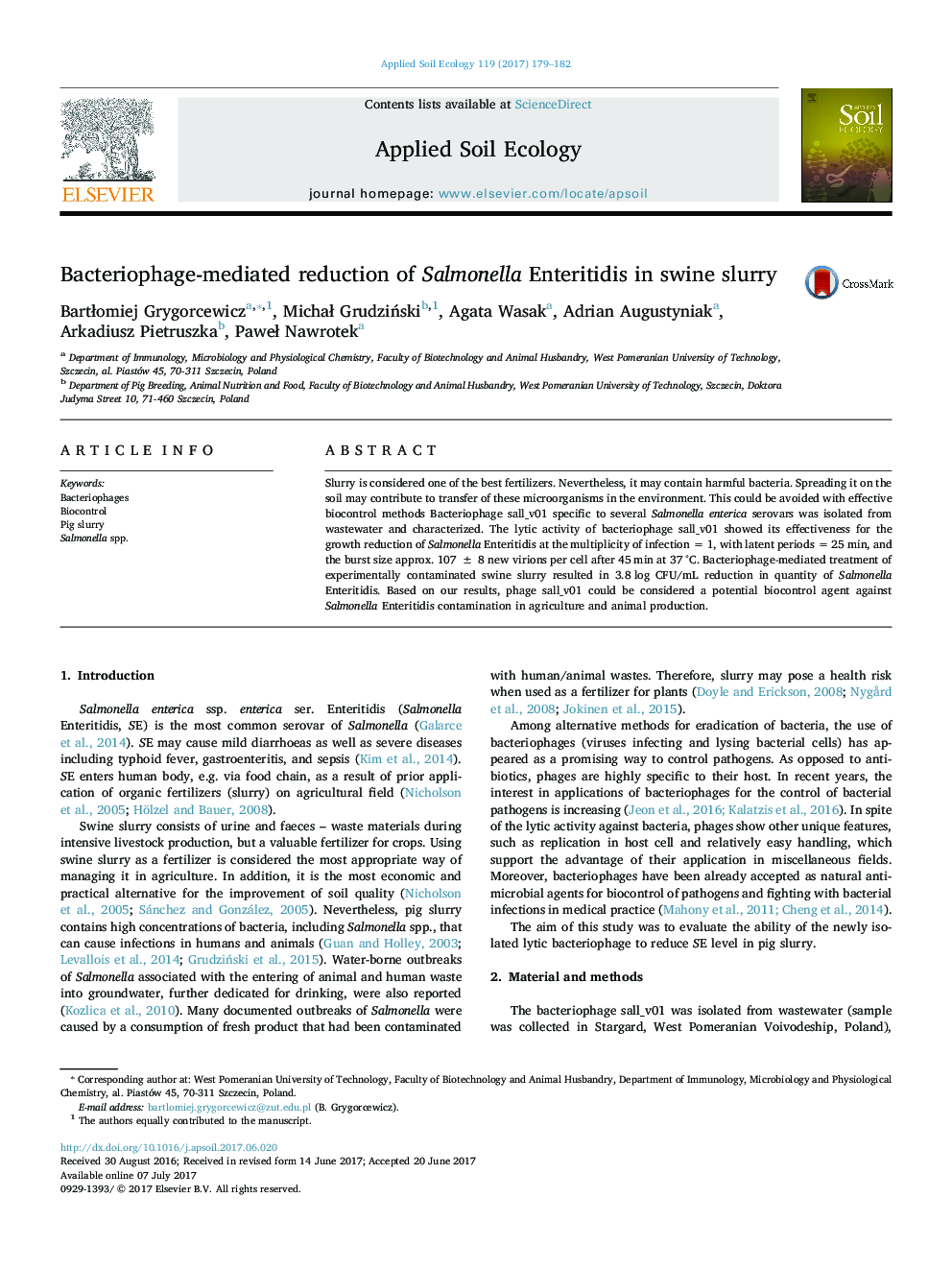| Article ID | Journal | Published Year | Pages | File Type |
|---|---|---|---|---|
| 5742605 | Applied Soil Ecology | 2017 | 4 Pages |
â¢Wastewater is a source of isolation phage active against Salmonella Enteritidis.â¢Phages reduce the number of Salmonella Enteritidis directly in the swine slurry.â¢Bacteriophages can be an alternative method of swine slurry sanitizing.
Slurry is considered one of the best fertilizers. Nevertheless, it may contain harmful bacteria. Spreading it on the soil may contribute to transfer of these microorganisms in the environment. This could be avoided with effective biocontrol methods Bacteriophage sall_v01 specific to several Salmonella enterica serovars was isolated from wastewater and characterized. The lytic activity of bacteriophage sall_v01 showed its effectiveness for the growth reduction of Salmonella Enteritidis at the multiplicity of infection = 1, with latent periods = 25 min, and the burst size approx. 107 ± 8 new virions per cell after 45 min at 37 °C. Bacteriophage-mediated treatment of experimentally contaminated swine slurry resulted in 3.8 log CFU/mL reduction in quantity of Salmonella Enteritidis. Based on our results, phage sall_v01 could be considered a potential biocontrol agent against Salmonella Enteritidis contamination in agriculture and animal production.
